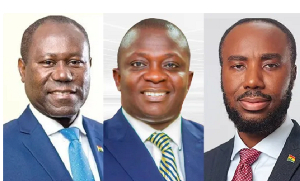The National Insurance Commission, Ghana’s insurance industry regulator has presented new guidelines for general (non-life) insurers with regards to providing cover for the upstream oil and gas industry.
The new guidelines will apply to individual insurers and to the pool they have formed, called Ghana Oil and Gas Insurance Pool, GOGIP, which enables them to combine their respective financial capacities to underwrite the big-ticket insurance policies required by oil and gas operators for risks incurred in their exploration and production activities.
Formed in 2013, GOGIP currently comprises 22 of the 30 non-life insurers currently licensed in Ghana, but over the past few years, its existence has been threatened by the dissatisfaction of some members with regards to their share of some of the businesses handled by the pool.
The new guidelines from the NIC address this among other key issues, with a view to keeping all the member companies happy.
Prior to the new guidelines, members were assigned proportions of incoming new insurance contracts accepted by the pool, based on their relative size.
However, some insurers have been dissatisfied with this arrangement, arguing that it has cost them market share, since their relative size is much smaller than their relative contributions to attracting new insurance contracts and consequent premium income.
Under the new guidelines drawn up by the NIC, which are now being considered by GOGIP’s member companies, the insurer which brings business for the pool would be assigned a proportion of the business based on its role in generating the new business, albeit within its financial capacity.
To this end, no member would be allowed to take on a risk liability of more than 10 percent of its total net assets, although additional risk can be ceded to the company based on a gross treaty retention limit of not more than 15 times the net retention limit.
Even with the pooling of the capacity of all 22 members, the NIC is unwilling to let GOGIP take on insurance treaties of more than US$50 million, which is still just a fraction of the value of the upstream and mid-stream oil and gas properties requiring a cover.
A typical oil and gas field development involves well over a billion dollars, which means even GOGIP has to pass on most of the risk covered by any of its treaties to international reinsurers; currently the minimum capital requirement for non-life insurers is the cedi equivalent of about US$3 million although the NIC is about to commence a recapitalization exercise which will increase this to about US$10 million. However, the pooling by the local firms at least allows them to use their full capacity in a prudent way.
Member insurers must have the formal approval of the NIC before going ahead to write a policy, as well as the acceptance of the lead reinsurer and the other members of the pool so they are aware of what they are getting into.
Construction risks underwritten must have a defined time period of cover and while operational risks are usually insured on an annual basis, longer-term treaties can be negotiated of up to three years, subject to review clauses and prior policy experience.
The new guidelines set placement commissions payable to the business generating insurer by a partner it gives part of the business to at four percent of the placement premium. At least 95 percent of the reinsurers providing reinsurance cover must have financial strength ratings of at least “A minus” by Standard & Poors or “A” by AM Best.
GOGIP was established in 2013 exclusively to provide insurance cover for oil and gas exploration, appraisal, production, storage and transport of crude oil and gas, in accordance with the Insurance Act of 2006 (Act 724) and the Petroleum Local Content and Local Participation Regulations 2013 (LI2204).
Its purpose is to maximize local retention of upstream and midstream oil and gas insurance and thus minimize outflows of reinsurance premiums in foreign exchange to foreign reinsurers.
Business News of Tuesday, 26 February 2019
Source: goldstreetbusiness.com
Fresh rules for oil and gas insurance
Opinions












